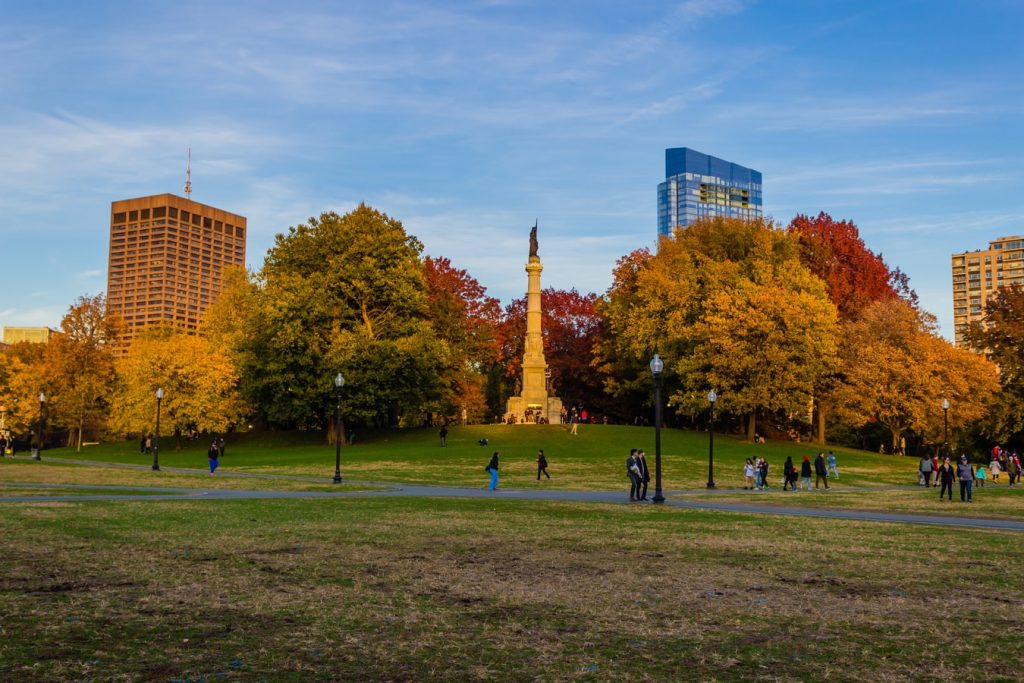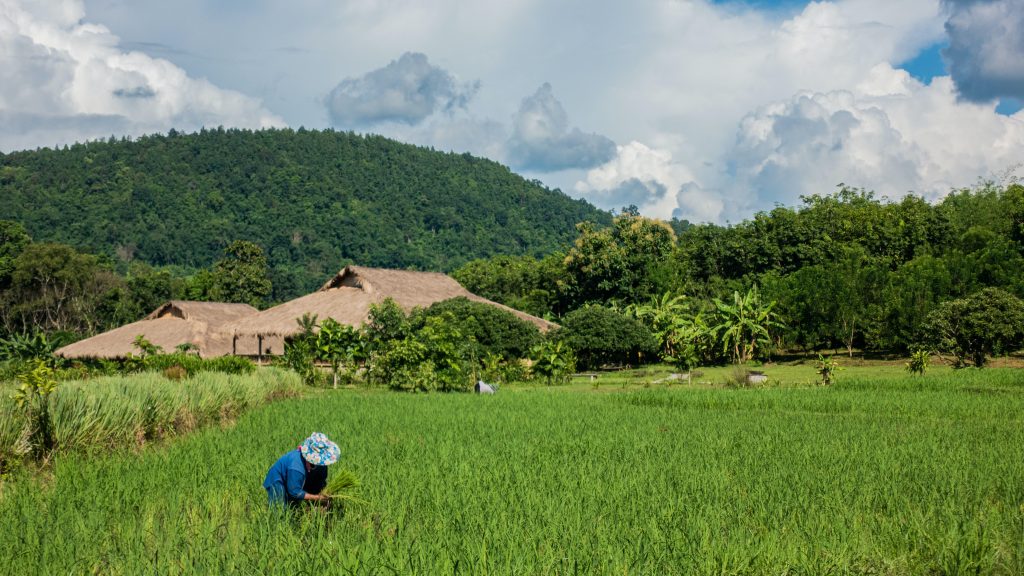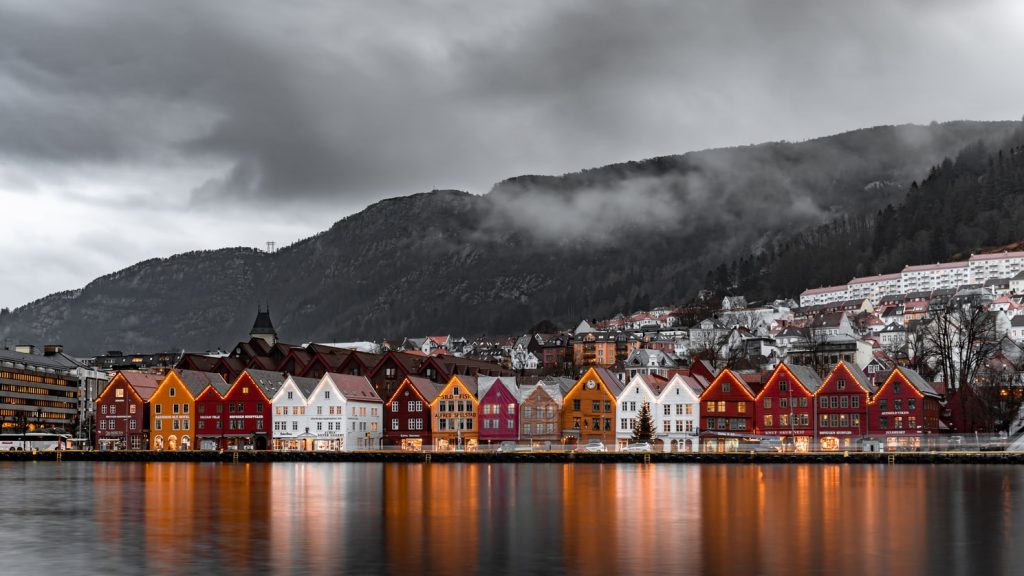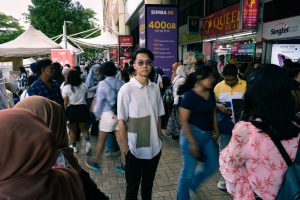This is a series of voter profiles by RICE where we speak to Singapore’s many disparate communities and find out the issues that matter to them.
Has living abroad and experiencing different political systems and societal cultures influenced the way they think about local elections or political culture?

She says that living in the US gave her an acute unawareness of what an uninformed voter she had been while in Singapore.
“My husband is American. I saw him be far more informed than I was. He had grown up learning about the constitution in school. I on the other hand realized I have no idea what the constitution says; I never learned it, I never cared to understand.”
Lakshmi says her time in the US has motivated her to improve her political knowledge and be more involved in civic matters and participate in civic engagement. Lakshmi attributed some of that to her local community culture: she lives in Jamaica Plains, a historic neighborhood in Cambridge, Massachusetts, with a long history of social activism.
“I saw my husband and friends were very involved in civic engagement. When local bills are passed, many of them engage with representatives, make phone calls, question representatives about how they vote, what their views are about legislation. In Singapore you have MP sessions, you go there to air your grievances or get specific help. But I never engaged my elected members on policy or legislative issues.”
Of course, there are drawbacks to the US political system as well. Lakshmi acknowledged that many bills in the US just get stuck in Congress and never get passed, due to political gridlock and ideological polarization. On the other hand, things get passed quickly in Singapore, but we don’t necessarily scrutinize what gets passed in detail. There seems to be trade-offs between efficiency and a more inclusive policy-making process.
Lakshmi noted that while Singapore’s government is very competent in delivering basic goods and services, our society lacks a free press and robust civil society. In contrast, the US has a free press (that is not always responsible) and a robust civil society, but lacks competent government.
Still, Lakshmi thinks that while we need to recognize that trade-offs in governing models or policies may be inevitable, Singapore needs to have more conversations on what those trade-offs are, who gets to decide the trade-offs, and how we make them.
Even while abroad, she continues to be engaged with local news and politics.
“If anything, being an active member of my local community has made me more motivated to contribute to issues that do concern many Singaporeans. Many people say, why? You don’t even live here. But even if I don’t live in Singapore, the people I love are still in Singapore. My parents live in Singapore. They are going to be there for the rest of their life times. And there’s always a possibility that I will be back.”

Hui Ran noted that Singapore has very little land allocated to things like farming, largely because of our land constraints. She really appreciates the kind of freedom that land affords, and regrets that people in Singapore don’t have that freedom or expansiveness of space. She particularly values the diversity of livelihoods that living in a country with land affords you, and admires how livelihoods such as farmers and craftsmen are respected in Thailand.
At the same time, living in Thailand has shown her how a tightly run government can alleviate the possibility of corruption. She said, “In Thailand, not all governance is as ‘clean’ as in Singapore. There are situations where you have to go under the table with people. I’ve heard of them. I’ve also witnessed and been privy to such occasions. In Singapore, that’s obviously not the case. This has taught me that a clean government does give its citizens more mental space, since you don’t have to constantly worry about how to navigate bureaucratic loopholes.”
She adds, “I never feel an oppressive military presence”.
The most prominent way the military features in her life is when she sees them functioning as traffic police. Hui Ran pointed out that although international media portray Thailand as being ruled by military junta, their presence is quite unobservable to the everyday person.
Still, Hui Ran acknowledged that her view of Thailand was highly curated by her experience as a foreigner. “As a guest, you only see the good sides. When I first moved here, I thought, Thailand is so perfect, so fantastic, things are so cheap. But I also realize more and more that a lot of it has to do with my privilege, and I’m in a unique position.”
In the end, Hui Ran acknowledged that her own encounters with Thailand have been very good largely because of her local situation (she lives in a rural town), and has quite little to do with the political situation in the country.
Like Lakshmi, Hui Ran keeps abreast of local politics even in Thailand. “I feel in touch through reading the news. Nowadays, sharing opinions online seems to be the dominant form of millennial activism. There’s a lot of political literacy stuff going on.”

She noted the main differences between Singapore and Norway were the different values placed on work life balance. “In Norway, we have very strict work hours from 8-4. You do not contact your employees after 4 or even on the weekends.”
She also cited Norway’s considerably more family friendly policies as a main reason why she moved there with her husband.
“What is nice about the Norwegian government is that they really invest a lot of money to make sure that you have support in maintaining your family. When it comes to maternity leave, you have like one year. School wise it’s all free. Especially for public schools, up to university. If your kid is sick, you do have rights to sick leave, when you want to stay home with your child. You get 16-24 days of paid leave. You have to pay in Singapore for childbirth, but here it’s free.”
Beyond familial policies, Ash also cited other examples of generous social policies that make Norway an attractive city. “Hospital surgeries are free. Those who want to go to school don’t have to pay, you can be a doctor even if your family is poor, and you get a student loan that is almost free: there are very low interest rates and you can pay them for over thirty years.”
More importantly, Norway has strong labour protections and low levels of income inequality. Said, Ash, “There are not many differences in the salary rates, because you have a minimum wage that is quite high, about $20+ SGD. That would be how much you earn in a store, or as a manicurist. And of course you have all the rights: rights to five weeks paid leave, one year maternity leave, on top of minimum wage. You can’t really see the class difference. You won’t see a 90-year-old man working at KFC. Most people after 65 are already pensioned. People are generally quite happy with how the government has been doing so far.”
While Ash hopes to see more discussion on these social policies in Singapore, she feels like our political discourse is still not very mature, as her impression is that most opposition candidates in past general elections were largely focused on negative campaigning. She observed that opposition politicians were more focused on trashing the PAP, rather than on giving thoughtful, constructive policy suggestions.
Still, perhaps this current election may signal a shift in the quality of opposition debate, particularly by larger parties such as the Workers’ Party, the Progress Singapore Party, and the Singapore Democratic Party. Ash herself has been keeping up with the general elections via Facebook and the rally broadcasts on CNA, and discusses it with her Singaporean friends who live near her home in Norway.

Nurhidayah stressed that moving to France has not changed her political leanings, nor her understanding of local politics in Singapore. She has always been interested in the socio-political affairs of our country in both a personal and professional capacity, as she formerly served as an associate lecturer teaching social sciences at the Singapore University of Social Sciences. Since her undergraduate days, she has been curious as to how policymaking, political ideologies, and Singapore history shape persistent social issues like income/class gaps, race relations and gender inequalities.
Nurhidayah notes that there are too many differences in terms of political culture between the two countries to enable a fair comparison.
She says, “Singapore has a single-party, authoritarian government that is consistently popular with the larger population, and our system is underlined by unwavering neoliberalism values. France is a social democracy that is still highly capitalistic but has strong social protection for its people. So I never try to compare both countries—we have very different histories, different political systems, different issues.”
“In general, the French value their right to express their political grievances and they can self-organise and mobilise support to advance their causes (ie: go on strikes and protests), hence they do not shy away from political discussions. Not to compare, but given the strict laws on freedom of expression in Singapore, people are naturally afraid to express their political opinions lest they overstep certain unknown boundaries.”
These Singaporeans living abroad were also upfront about how their own views of their host societies were skewed by their own positionality and privilege, and how they represent only one, out of many, scattered views about their host societies. The danger is when we hold singular views as representative of entire countries, or think it is possible to reduce complex lived experiences into a few short paragraphs from a single spokesperson.
Yet, what we can learn from their accounts is how leaving Singapore can make us more aware of her strengths and flaws, and open up room for different kinds of political imagination.
Living in Singapore, it may be hard for us to envision alternative social, political, and economic arrangements (as Ash some pointed out, the concept of “rights” didn’t resonate with her until she moved to Norway). While we cannot simply import and transplant values wholesale from one country to another, the act of moving can help us envisage new possibilities, and make us question existing assumptions about our home country that we may have taken for granted.
Have a lead for a GE related story? Send it to community@ricemedia.co.






